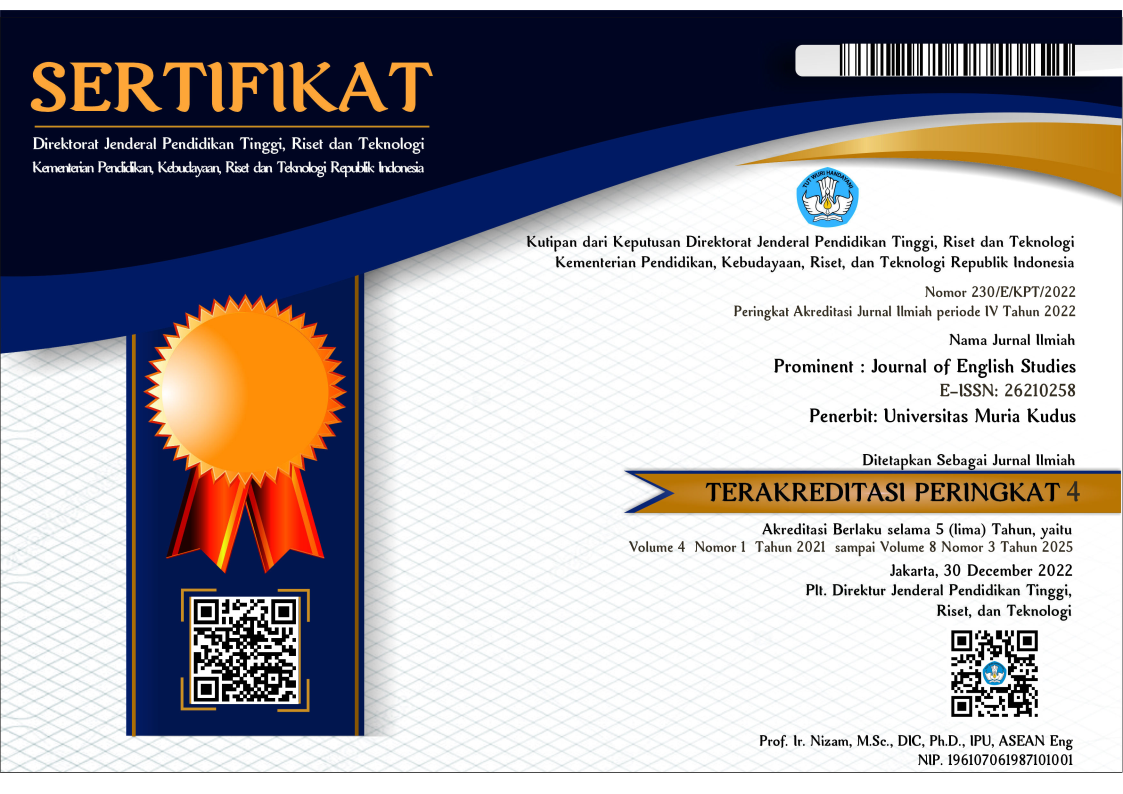Vocational High School Students’ Difficulties in Practicing Speaking
Abstract
Keywords
Full Text:
PDFReferences
Brown, H. D. (2001). Teaching by Principles: an Interactive Approach to Language Pedagogy (2nd ed.). Pearson Education.
Cohen, L., Manion, L., & Morrison, K. (2007). Research Methods in Education (6th ed.). Routledge.
Miles, M. B., Huberman, A. M., & Saldaña, J. (2014). Qualitative Data Analysis: A Methods Sourcebook (3rd ed.). SAGE Publications.
Muliyah, P., & Aminatun, D. (2020). Teaching English for Specific Purposes in Vocational High School: Teachers’ Beliefs and Practices. JET (Journal of English Teaching), 6(2), 122–133. https://doi.org/10.33541/jet.v6i2.1756
Nunan, David. (2003). Practical English language teaching. McGraw-Hill/Contemporary.
Pratolo, B. W., Habibie, A. F., & Setiawan, A. (2019). Speaking Skill Challenges Encountered by Indonesian EFL Learners’.
Rosa, M. (2002). Don’cha Know? A Survey of ESL Teachers’ Perspective On Reduced Forms Instruction. In Second Language Studies (Vol. 21, Issue 1).
Sari, D. P., Humaera, I., & Syahriani, R. (2023). An Analysis of Students Difficulties in Speaking English. Al-Irsyad: Journal of Education Science, 2, 108–119. https://doi.org/https://doi.org/10.58917/aijes.v2i2.66
Soreh, R., Pelenkahu, N., & Muntuuntu, M. (2022). Problems Encountered By The Students’ In Speaking English At Twelveth Grade Of SMAN 2 Gemeh. In JoTELL Journal of Teaching English (Vol. 1, Issue 5). https://doi.org/https://doi.org/10.36582/jotell.v1i5.3927
Ur, Penny. (1996). A course in language teaching : practice and theory. Cambridge University Press.
Verapornvanichkul, P. (2011). A Survey Of Problems in Oral Communication Skills When Dealing With English Speaking Clients: A Case Study Of Employees at One Of The Big 4 Audit Firms in Thailand.
Wijayanti, D. N., & Rokhayani, A. (2022). Spontaneity Elements Found in Spoken Discourse of University Students. Prominent : Journal of English Studies, 5(2), p-ISSN.
DOI: https://doi.org/10.24176/pro.v8i1.13204
Refbacks
- There are currently no refbacks.
Prominent Journal of English Studies is licensed under a Creative Commons Attribution-ShareAlike 4.0 International License.
Dedicated to:

in Collaboration with APSPBI:





